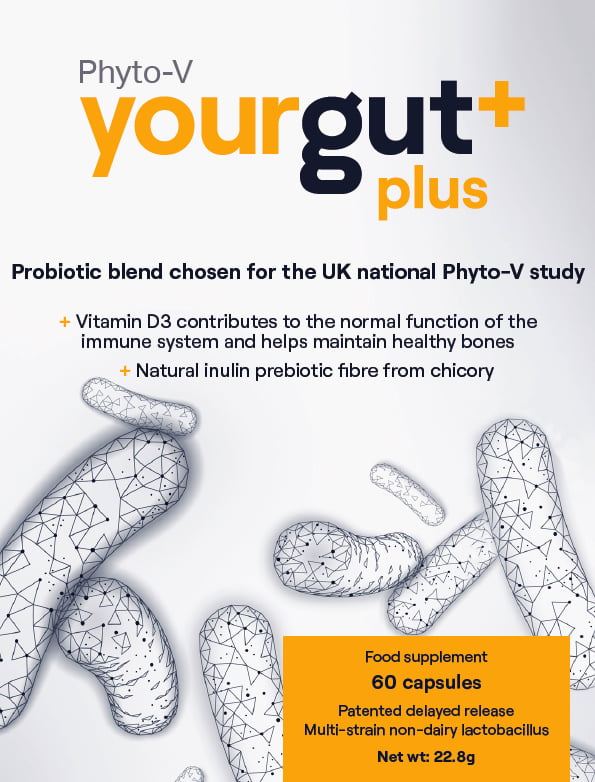Benefits of combining Vitamin D with lactobacillus probiotics
During the autumn, Winter and Spring it’s essential to maintain healthy levels of vitamin D. Low levels are linked to Seasonal Affective Disorder (SAD), fatigue, infertility, an increased risk of cancer, osteoporosis, arthritis, heart disease, dementia, covid, and other viral infections ...read more
Sensible exposure to sunlight is the most reliable why to maintain vitamin D levels but it is also present in some foods such as oily fish and mushrooms… read more
A good quality, precisely dosed vitamin D supplement is also a good way to keep your vitamin D levels high but most available over-the-counter have not been shown to actually increase blood levels.

If you have poor gut health your absorption of vitamin D is impaired. What’s more, low vitamin D levels, along side a leaky gut, both leading to chronic inflammation, is a perfect storm for ill health.
Several clinical trials have reported that oral Lactobacillus probiotic strains resulted in significantly increased serum vitamin D absorption. The likely mechanism for this is increased lactic acid production from the probiotic bacteria, which in turn increases the enzyme responsible for vitamin D absorption and synthesis.
The most effective vitamin D supplements are combined with probiotics as there is synergy between them.
As well as this obvious benefit, vitamin D and probiotics have been shown to increase the effectiveness of anti-viral (flu) vaccines – this is why Yourgutplus+ has been selected for the UK covid vaccine enhancement study.
Yourgutplus+ also has other strong scientific credibility. It was selected for the UK National Nutritional Covid intervention study, which found a link between this lactobacillus blend with enhanced recovery from early and long covid [Read full paper]. It is also now being used in the latest prostate cancer nutritional intervention study
References:
Costanzo, M. et al. Krill oil, vitamin D and Lactobacillus reuteri cooperate to reduce gut inflammation. Beneficial microbes 9, 389–399 (2018).
Shang, M. & Sun, J. Vitamin D/VDR, probiotics, and gastrointestinal diseases. Current medicinal chemistry 24, 876–887 (2017).
Jones, M. L., Martoni, C. J. & Prakash, S. Oral supplementation with probiotic L. reuteri NCIMB 30242 increases mean circulating 25-hydroxyvitamin D: a post hoc analysis of a randomized controlled trial. The. Journal of Clinical Endocrinology Metabolism 98, 2944–2951 (2013).

